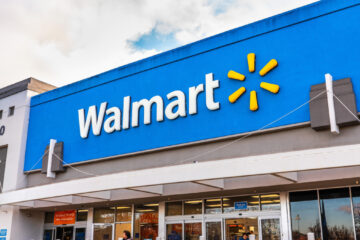George Kurtz wanted to set the record straight.
Kurtz, co-founder, president, and CEO of CrowdStrike (CRWD) , faced analysts during the cybersecurity company’s first earnings call since a faulty update to its Falcon Sensor security software on July 19 sparked what has been called the largest IT outage in history.
Related: Analysts reboot CrowdStrike stock price targets after lawsuit
The incident caused problems with Microsoft (MSFT) Windows systems worldwide, leaving them stuck on a recovery page with only a “Blue Screen of Death” on display.
“The magnitude of the July 19th incident will never be lost on me, and my commitment is to make sure this never happens again,” Kurtz said as he apologized for the outage.
“The days following the incident were among the most challenging in my career because I deeply felt what our customers experienced,” he added. “Our response to the July 19th incident was immediate, deliberate, and focused.”
Travelers filed class action lawsuits against CrowdStrike and Delta Air Lines (DAL) said it will seek damages, while CrowdStrike has accused Delta of putting out a “misleading narrative.”
CrowdStrike received some sharp criticism from Tomer Weingarten, CEO of rival cybersecurity company SentinelOne (S) , who said the outage was “an avoidable incident that was born under disregard for software deployment best practices.”
Analysts react to CrowdStrike’s quarterly results.
Shutterstock
CrowdStrike CEO blasts ‘false narratives’
Weingarten also railed about “self-proclaimed industry leadership and overzealous marketing create a false perception of reliability.”
Morgan Stanley analyst Hamza Fodderwala noted that “there’s been a lot of talk” about whether Microsoft or customers might limit kernel access for future updates. Kernel access refers to a program at the core of a computer’s operating system.
Related: Analysts reboot SentinelOne stock price targets after earnings
“Despite a lot of the false narratives and misinformation from our competitors,” Kurtz said, “I want to be clear that this was not a kernel update…it was a configuration update.”
“When we think about the architecture of what we’ve built and rearchitecting it, I’ve got to set the record straight on that as well,” he continued. “We have best-in-class architecture, and we lead the industry for a reason. We have greater efficacy, greater manageability, and greater scalability than our competitors.”
CrowdStrike reported better-than-expected second-quarter results, but it reduced full-year guidance due to incentives for a customer commitment package after the outage. The company offers customers higher discounts and free modules to entice platform adoption.
“These financial results illustrate the resilience of our business and our team,” Kurtz said. “Customers, prospects, and partners recognize CrowdStrike’s technological leadership and role in serving the market need for ongoing platform consolidation. This is why they continue to choose CrowdStrike.”
CrowdStrike posted an adjusted second-quarter profit of $1.04 a share, up from 74 cents a year ago and beating analysts’ expectations by 7 cents a share.
Revenue totaled $963.9 million, up 32% from a year ago, beating Wall Street’s call for $959 million.
TheStreet Pro’s Bruce Kamich, a technical analyst who has evaluated stocks for over 50 years, said that this kind of news would normally point to higher share prices, “but traders seemed to be concerned that the company slightly tweaked its full-year guidance in response to last month’s global outage.”
“The rebound bounce in CRWD looks like it is over,” Kamich said. “The question now is: Are we only going to get a retest of the early August low, or have we started a new trend lower?”
CrowdStrike, which saw its shares tumble in the days after the incident, is up 7.4% year-to-date as of August 29 and 90.4% from a year ago.
Analyst: CrowdStrike results ‘better than feared’
Raymond James analyst Adam Tindle lowered the firm’s price target on Crowdstrike to $275 from $380 and kept an outperform rating on the shares.
Strong second quarter results were “better than feared,” and forward guidance was “surprisingly close to our bogeys on many key metrics” considering the unprecedented events during the quarter, Tindle said.
More Tech Stocks:
Analysts reset AMD stock outlooks after AI acquisitionAnalyst resets Nvidia stock price target before earningsTrader who predicted Palantir, SoFi, Rocket Lab rallies updates outlook
A “customer commitment” plan offering concessions will weigh on results in the second half with an estimated $60 million impact, the analyst noted.
However, absent this incident, CrowdStrike was on a trajectory to carry “elite” mid-20%-plus growth on the real-time demand metric of Net New Annual Recurring Revenue – the total annual recurring revenue a business takes in over one year – despite a larger scale than most companies growing at its level, Tindle said.
Bank of America Securities analysts reiterated their $365 price target and buy rating for CrowdStrike, saying that management discussed at length the steps taken–technical and others–to ensure such events do not repeat in the future.
The investment firm said endpoints represent one of the most strategic parts of a cybersecurity defense line, and CrowdStrike offers one of the most effective solutions in the market. There are no signs of share loss and continued strong performance.
BofA said the expected impact on the NNARR was better than feared, at $30 million per quarter, compared with Wall Street’s recent $30 million to $60 million quarter reduction.
The new revenue growth guidance de-risked third-quarter and fourth-quarter expectations, which were 300 basis points and 500 basis points below Wall Street’s consensus, respectively, the firm added.
Oppenheimer lowered the firm’s price target on CrowdStrike to $365 from $450 and kept an outperform rating on the shares after the company beat estimates and delivered 11% NNARR growth despite dealing with the impact of the July 19th IT outage.
For the second half of Fiscal Year 2025, management guided third quarter-2025 revenue guidance below estimates, largely due to a $60 million subscription revenue headwind from its customer commitment package, Oppenheimer added.
While the firm expects the stock to remain range-bound until investors gain greater clarity around FY26 growth trends and the timing of NNARR re-acceleration, Oppenheimer said that it believes CrowdStrike’s long-term growth opportunity remains intact and continues to view it as a leading cybersecurity platform.
Related: Veteran fund manager sees world of pain coming for stocks


